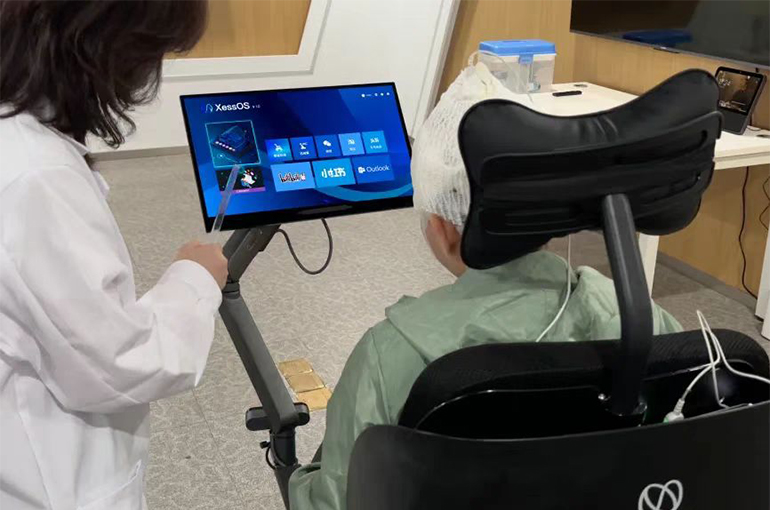 Chinese BCI Startup NeuroXess Hails Breakthrough in Mind Control of Smart Devices
Chinese BCI Startup NeuroXess Hails Breakthrough in Mind Control of Smart Devices(Yicai) Jan. 6 -- NeuroXess has successfully implanted patients with the Chinese brain-computer interface startup's self-developed invasive devices, allowing them to carry out "dialogue" with and control smart devices using their minds.
Thanks to the efficient collection and real-time analysis of high-throughput, high-quality, and large-scale electroencephalogram data across brain regions, patients can conduct motor and language decoding tests two days after getting an invasive BCI and control smart devices in Chinese using their minds within two weeks, said Tao Hu, founder of Shanghai-based NeuroXess.
Compared with achieving "mental dialogue" between patients and smart devices, achieving "mind manipulation" of devices is more difficult and marks a breakthrough in NeuroXess's real-time Chinese language decoding technology, Tao noted.
The technology synthesizes the subjects' thoughts into Chinese in real time, decodes their electroencephalogram information into language, and then converts it into real-time manipulation instructions to achieve human-computer interaction, Tao said.
"This achievement not only brings hope for aphasic patients to reshape their language functions but also opens up new possibilities for the direct interaction between the human brain and artificial intelligence models and even for thought exchanges," Tao pointed out.
Human clinical trials need strict ethical approvals and are the most costly subject in NeuroXess's research and development investment, according to Tao. "We hope to explore some more convenient and faster approval channels to accelerate the clinical application of the products."
Many Chinese hospitals will likely be able to carry out related surgeries and benefit more patients as the time for clinical implantation surgeries of BCI gets significantly shortened and the degree of standardization and precision gets higher and higher, Mao Ying, the dean of Huashan Hospital, which performed the most recent operation, told Yicai.
NeuroXess plans to complete the clinical registration of its BCIs within three years and will accelerate the devices' clinical trial work this year, Tao said
NeuroXess plans to list on the Shanghai Stock Exchange's Science and Technology Innovation Board or in Hong Kong around 2028, Peng Lei, chief executive of NeuroXess, said in an interview with Yicai in June.
Established at the end of 2021, NeuroXess completed a Series A+ fundraiser a year later with Shanda Group and HongShan Capital Group among the most well-known investors.
Editors: Tang Shihua, Martin Kadiev